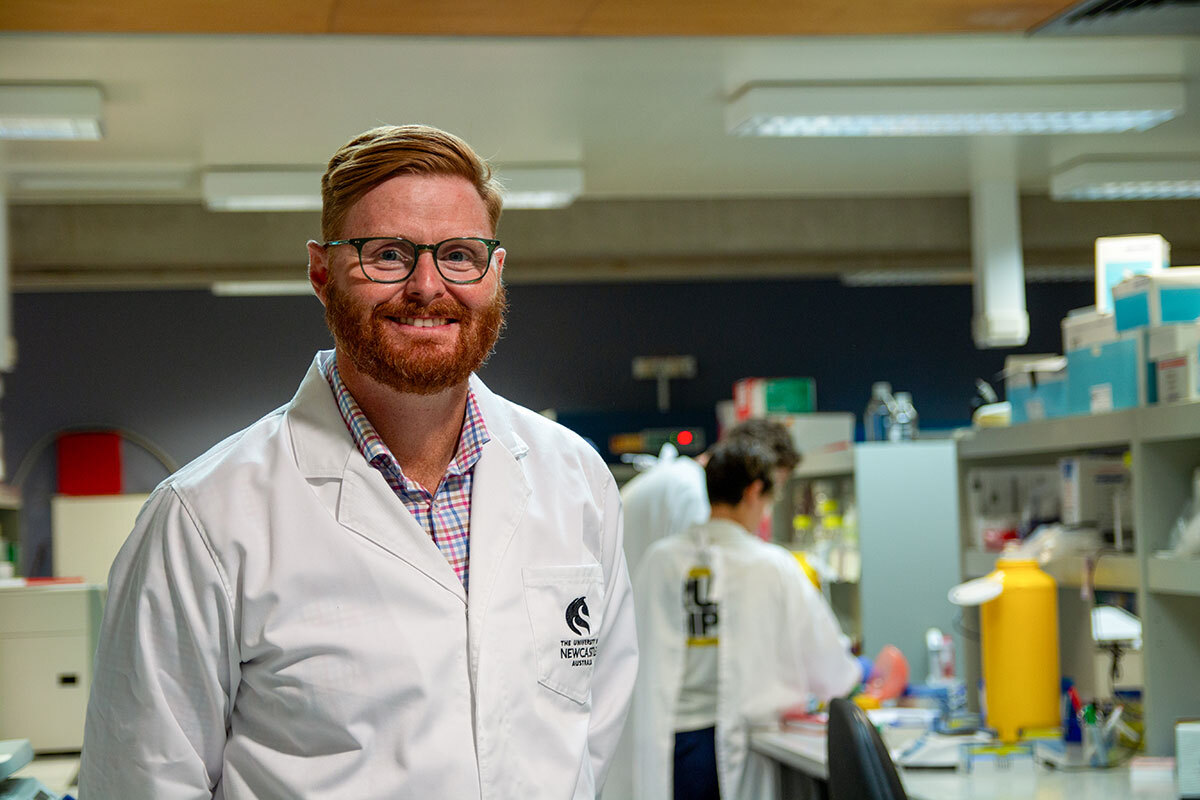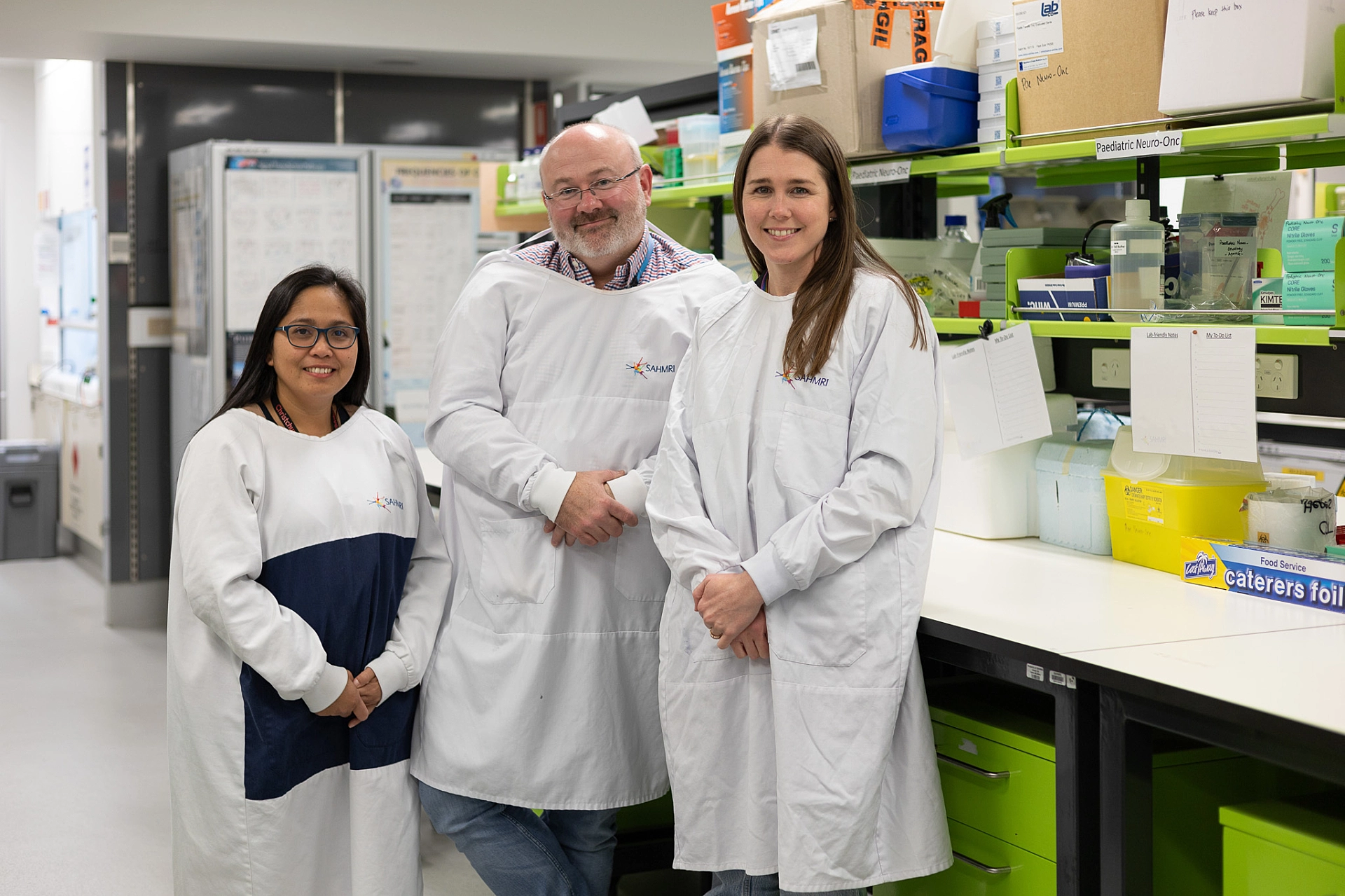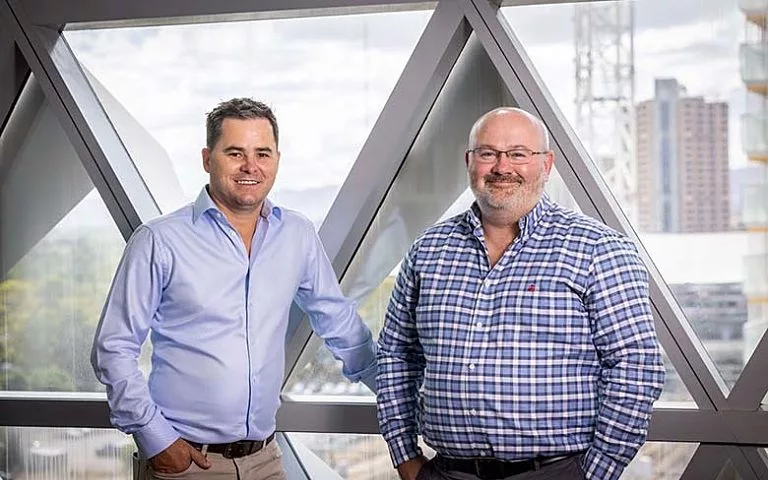A national research collaboration backed by an $18.7 million from the Medical Research Future Fund (MRFF) is set to take a major step toward new treatments for the most lethal form of brain cancer in children and young people.
High grade gliomas (HGG) affect more than 2,000 Australians every year and are the leading cause of cancer death among children and adolescents.
Despite advances in cancer care, survival rates remain at less than 15 months post diagnosis, with most cases untreatable.
The five-year project is led by Prof Matthew Dun at the University of Newcastle, with Prof Jordan Hansford overseeing the national clinical trials for this new agent. Prof Hansford is the head of SAHMRI’s Paediatric Neuro-oncology research program and a paediatric oncologist with Adelaide’s Women’s and Children’s Hospital.
Prof Hansford will play a pivotal role in ensuring discoveries reach patients. He’s leading the clinical translation, advising on the real-world relevance of preclinical findings, guiding the design of early phase trials for children and coordinating patient recruitment through the Australian and New Zealand Children’s Haematology/Oncology Group (ANZCHOG).
“For families facing a diagnosis of high-grade glioma, the reality has long been that there are no effective treatment options,” Prof Hansford said.
“This project offers a genuine chance to change that, bringing hope where it has been desperately needed.”
HGGs are especially challenging to treat because they grow in sensitive parts of the brain that can’t be removed, typical chemotherapies don’t provide a benefit because they’re unable to penetrate the blood brain barrier, and the tumours have complex genetic and immunological features that make them hard to target.
Preclinical work has shown combining therapies that target cancer driving pathways can significantly extend survival in brain cancer models. The team is now developing a new class of compounds known as brain penetrant Protein Kinase C inhibitors with greater potency, selectivity and safety than earlier candidates.

Prof Dun says the most advanced of these, JLD14, has shown strong promise in the lab.
Over the next five years, the project will complete the preclinical testing required to move JLD14 into human trials while working on additional Protein Kinase C inhibitors to expand future treatment options.
“We’ve developed a suite of next-generation therapies designed specifically to reach the brain and target the tumour,” Prof Dun said.
“Our research directly addresses current treatment barriers by developing novel, brain-penetrant therapies that target dependencies of these cancers.”
The team aims to open Phase I clinical trials in Australia within five years and Phase II trials within a decade.





